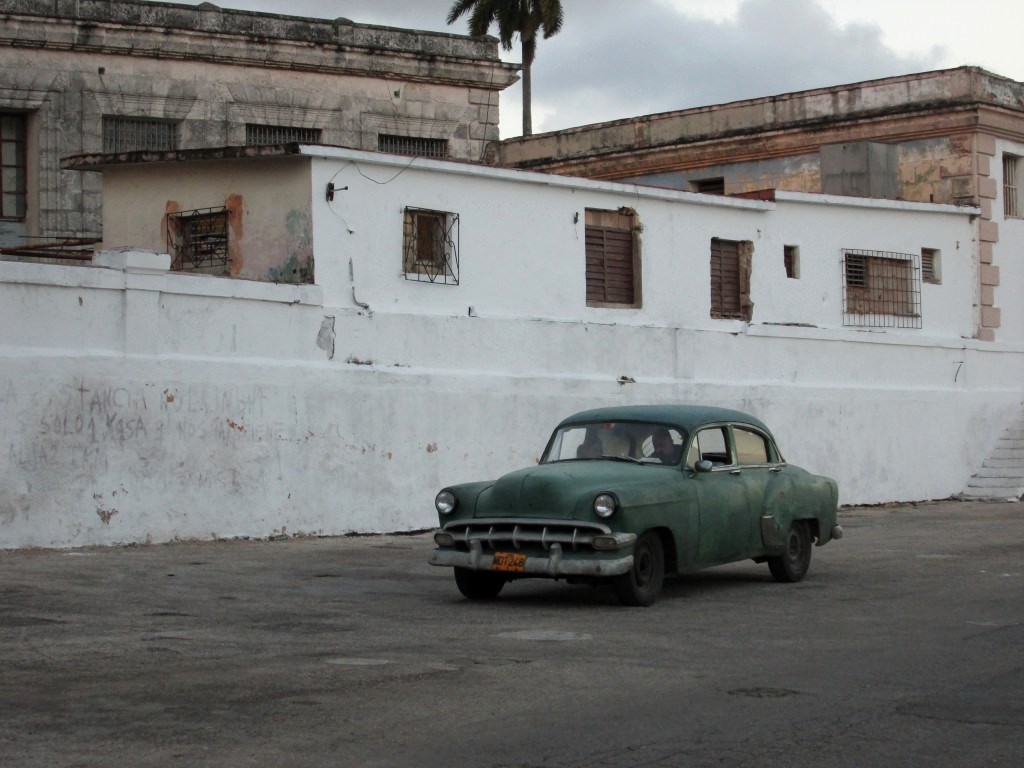Fidel Castro took over the power in 1959. Shortly afterwards, he took one measure after another to dismantle all independent institutions and eliminate all individual liberties. As a consequence, all power was concentrated on him and him alone. He did not only consider that he has the right to decide on every aspect of the life of the society and any individual, but also that he has the right to decide how the society has to function for the next generations. By 2002, he changed the Constitution and declared that the laws imposed by himself cannot be invalidated by any means.
After a serious incident with his health, he temporarily transmitted the power and some functions of the Head of State to his brother Raúl. Later, in 2008, he found out that his health will not only not improve but that it will further deteriorate. Raúl Castro was appointed by his brother as President of the Council of the State and the government, First Secretary of the Communist Party and Commander in Chief of the armed forces. The concentration of power in one person, without transparency on the decision and without counterbalancing institutions brought, in the case of Cuba, the economical and the moral bankruptcy of the country.
One of the most damaging consequences of these decisions is the lack of hope for a better future. The result is a dramatical decrease in the fertility rate, migration and separation of families. Cuban population started to decrease in 2005 – by 2050, it will shrink by at least 13,8%. But it can decrease by 27,4% in case fertility rates do not rise.
Soviet, Venezuelan subsidies and an enormous unpaid debt to other countries create an illusion that the government is providing services free of charge. However, the money is gone without any foundation for the development of the country. The only thing that remains to be done by the group of people that have been so far controlling the country, is to transfer the American money to the next generation of opportunists who claim that they will carry on their legacy.
Corporations belonging to the armed forces are luring investors to share the monopoly of their business. None of these corporations is promising an efficient public transportation system, or a decent purchase power parity for the majority of the population, neither a state of the art equipment for the public health system, nor the basic availability of the internet.
Recent news of some prohibitions lifted by the government, might give the wrong impression that the situation is improving for the Cubans, while, in fact, the main issue still continues – the skyrocketing prices established by the monopolies. Meanwhile, the budget of the state has been fed with remittances, cashed in from the astronomic prices of all services related to migration and dollars transferred from the Venezuelan economy.
The continuation of this policy will end in the extermination of the Cuban nation. The best of its culture, traditions and values are at risk, the infrastructure is in shambles. The tourism industry is the only one where some improvements are carried out every now and then; but never to the point to offer a product with the quality that corresponds with the prices charged by the government.
On the other hand, the hopes of graduate students to work in a Cuban state company (unless they could get some opportunistic benefit) basically do not exist, fewer young people still have the desire to marry and start a family in the current Cuban conditions. As a result, the forecasts show that at the end of the century, the Cuban population will be smaller by 22-47% than the actual numbers.
What to do? A strategy must be prepared to increase the quality of life of the Cuban people and reverse the demographic trends. It is clear that:
-
It is absolutely necessary to establish a new constitution that would safeguard private property and the equal treatment for all Cubans. The state must implement policies that would enable the efficient use of the human capital that Cuba has. A process to decrease the consequences of the separation of the families must be urgently initiated;
-
Mechanisms that permit the development of small and medium enterprises (SMEs) have to be created, for there is no development without the respect and protection of the private property. The implementation of ways to extend the benefits of the tourism industry to other sectors, constitutes one of the possible and effective ways to achieve it. Enabling the modernization of agriculture to increase production and reduce prices, as well as setting the necessary conditions to improve the infrastructure (including housing for the thousands of Cubans that live today in dramatic conditions) are crucial;
-
The three powers of the state must be clearly separated. Freedom of opinion and choice has to be guaranteed and protected by the law, including freedom of the press and the social media, which should not become the property of any political party backed by the government authorities. Transformation of the system of individual and punctual permits (everything that is not specially allowed is prohibited) into a system based on the rule of law has to take place;
-
Creating efficient public administration, including the investment in education to give access to knowledge and life-long learning as well as to modernize the health system to bring good comprehensive system to the citizens, including a big share of elderly, poor people in the society, are vital.
Cuba needs a comprehensive structural reform of the constitution, legal system, economy and within its society. It needs to open up to dialogue, interchange and cooperation with today’s key international players: the United States, Europe, Latin America and the international institutions. We strongly believe that this attitude and disposition, would ramp up the economy, make the country attractive for investors and lure back the people who have already emigrated. What we would get in return would be a prosperous, developed and free Cuba.



